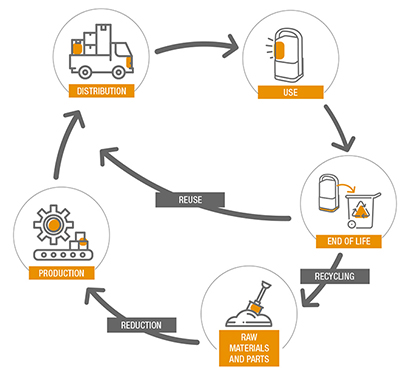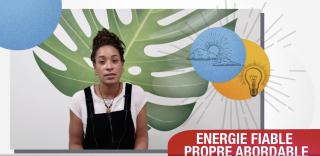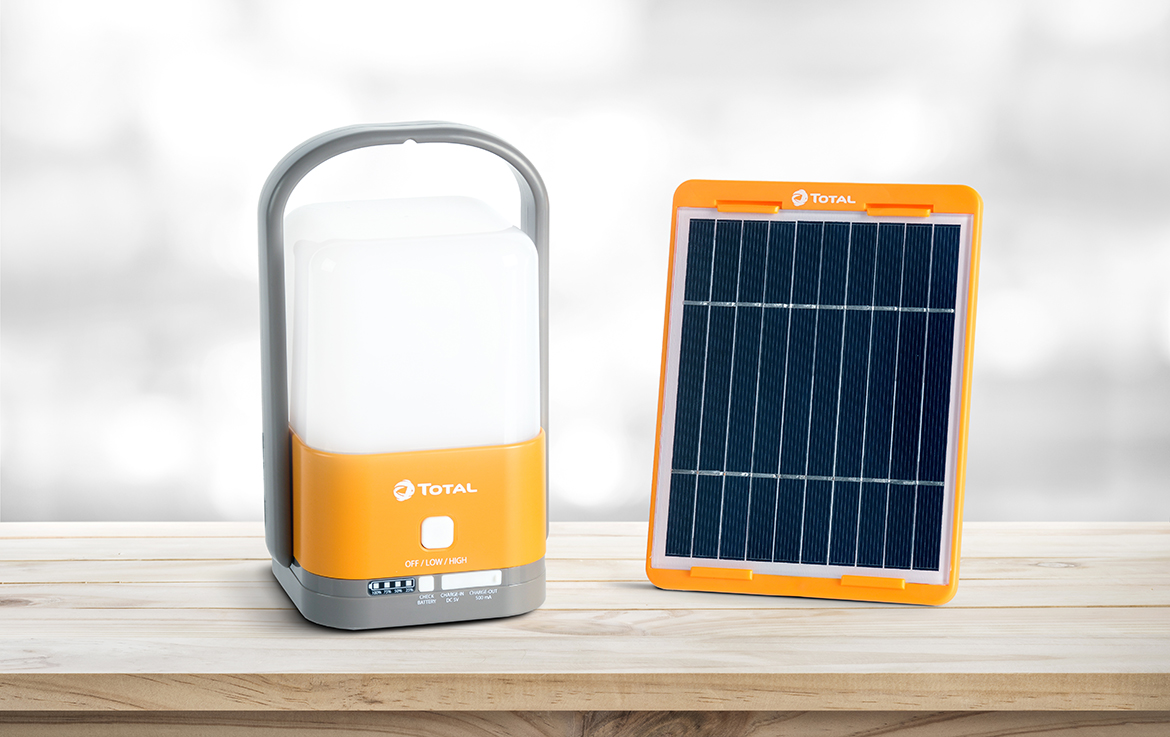Environmental issue
Energy an essential development factor
Access to energy is a key factor in development. Making energy accessible to as many people as possible is an integral part of our commitments. In this way, we are developing decentralized solutions to offer an affordable, reliable and sustainable source of electricity to populations without access to energy, mainly in Africa, South America and Southwest Asia.
In this context, solar energy is the best alternative to provide access to energy for as many people as possible, both in terms of its production cost and the solar capacity of these regions.
Clean and sustainable, solar energy is a renewable and unlimited source of energy. The electricity produced doesn't emit any greenhouse gases and helps to limit global warming.
Sustainable solutions with limited environmental impact
What is environmental impact?
ADEME[1] defines environmental impact as all the qualitative, quantitative and functional environmental modifications (negative or positive) generated by a project, a process, an organism or organisms and a product or products, from its or their design to its or their "end of life".
Still according to ADEME, there is no product without any environmental impact. Every product needs raw materials and energy to be manufactured. All products must be packaged and transported. Finally, even if it is recycled several times, any product or packaging will one day become waste. The challenge is to identify which solution has a lower impact than another for the same use.
Environmental issues are an integral part of the Access to Energy program, we attach a major importance to the environmental impact of our products.
Although the electricity produced by our solutions doesn't emit greenhouse gases during the transformation of solar energy into electrical energy. The manufacturing, transportation, and recycling of the solutions have an impact on the environment.
In order to limit this impact and optimize the footprint of our solutions, it is necessary to consider the entire life cycle of our products to determine possible areas for improvement. To meet this objective, we rely on a life cycle analysis (LCA).
Analyze the life cycle of our products to improve their environmental impact
What is a Life Cycle Assessment?
A Life Cycle Assessment quantifies the impact of the product from the extraction of the raw materials required for its manufacture, through the distribution and use phases to its end of life.
For TotalEnergies, this approach also aimed to reduce our waste stream and increase its recovery.
With the support of the GreenFlex company, Access To Energy Solutions has done a life cycle analysis on all the products of the SUNSHINE range. The results highlighted priority areas for improvement in order to minimize the environmental impact of our products, particularly in terms of end-of-life recovery.
As such, we support and participate to the development of collection and recycling channels for solar lamps.
In 2015, we joined forces with WEEE Center in Kenya with the aim of dismantling products and recovering their materials. This firstly required the introduction of a collection system. Local subsidiaries are now tasked with collecting products that are faulty or have reached the end of their life.
Giving these products a second life will involve introducing effective treatment systems to recycle and/or recover the associated waste. In 2018, a new three-way partnership was concluded between TotalEnergies, WEEE Center and Aceleron in a bid to address this issue by proposing second-life batteries, which would reduce the environmental and societal impact of our electronic products.






